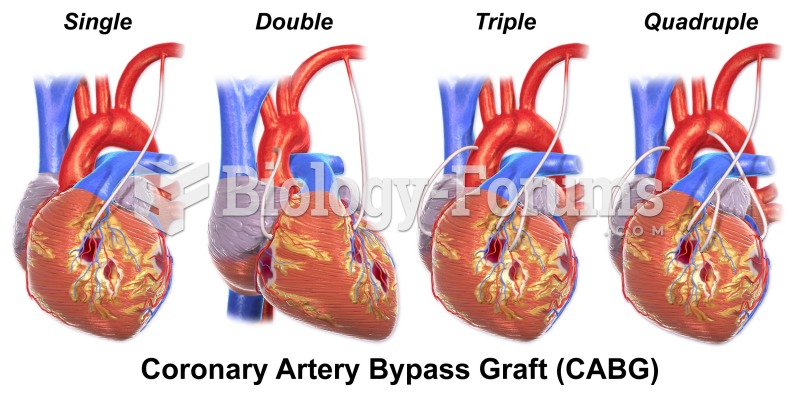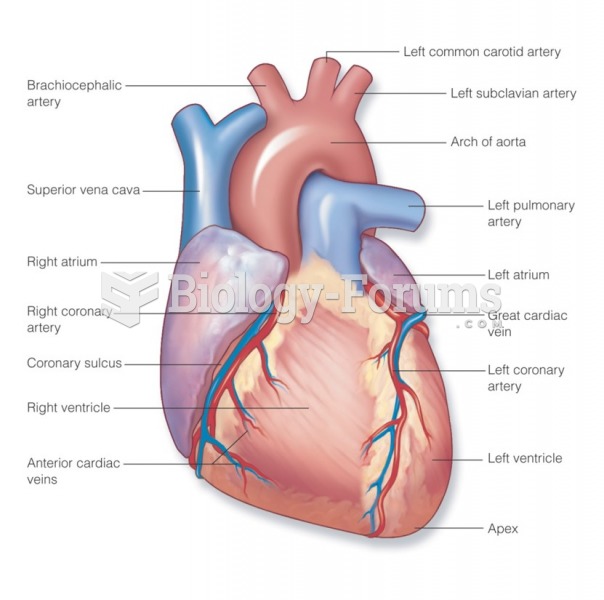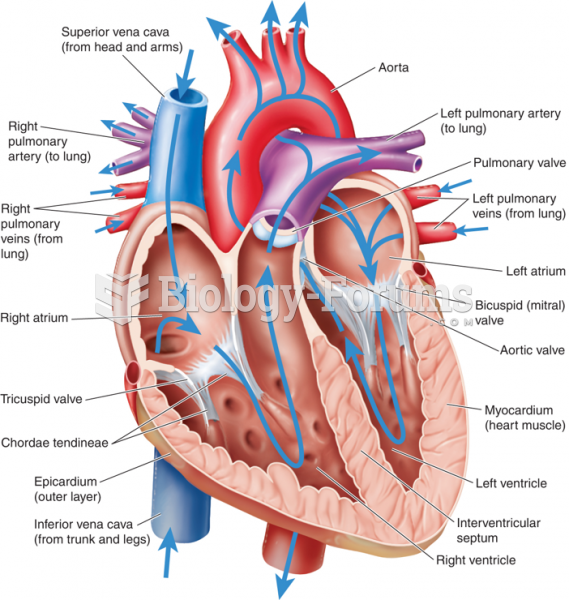|
|
|
Bisphosphonates were first developed in the nineteenth century. They were first investigated for use in disorders of bone metabolism in the 1960s. They are now used clinically for the treatment of osteoporosis, Paget's disease, bone metastasis, multiple myeloma, and other conditions that feature bone fragility.
Nearly 31 million adults in America have a total cholesterol level that is more than 240 mg per dL.
The first oncogene was discovered in 1970 and was termed SRC (pronounced "SARK").
The average human gut is home to perhaps 500 to 1,000 different species of bacteria.
Although puberty usually occurs in the early teenage years, the world's youngest parents were two Chinese children who had their first baby when they were 8 and 9 years of age.







